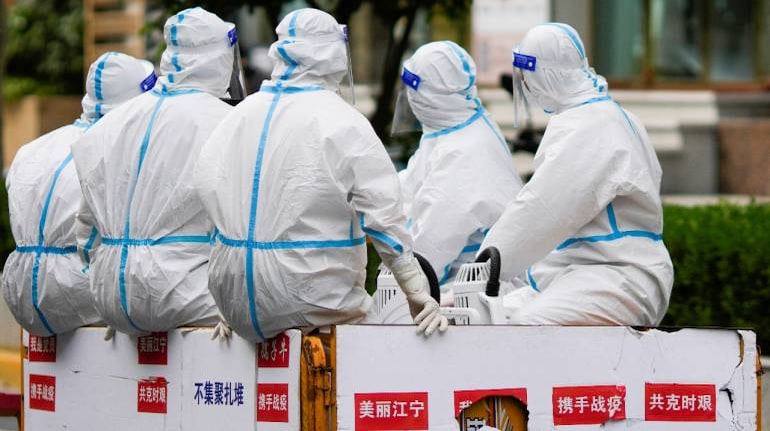



Three years after COVID-19 originated in China, that country seems to be looking at its worst outbreak of the pandemic with millions now exposed to the infection and a large number at the risk of developing a severe form of the coronavirus disease.
There are reports of hospitals in several Chinese cities, particularly Beijing, being overwhelmed by patients and of morgues filled with bodies of those who succumbed to the disease although there has been no official word from the Chinese government on hospitalized patients yet.
As China stares at a rough winter with some mathematical models predicting that the total number of infections in the country may be as high as 800 million and deaths in the range of 0.5-2 million over the next three months, top virologist Dr Gagandeep Kang told Moneycontrol that the situation in China is the result of a combination of four factors.
First, a fewer than the required percentage of the elderly population, the most vulnerable group, have received vaccinations, and second, the penetration of booster vaccines has been low.
Third, China had been focusing on massive quarantines and clamped stringent travel restrictions, which were recently lifted amid growing public pressure after almost three years.
Also read I Stem cell therapy not recommended for autistic kids: NMC
“Fourthly, this is winter when hospitals are usually under pressure from other viral infections and now there is a surge of COVID-19,” said Kang, who is associated with the Christian Medical College in Vellore.
Local media reports, citing the Chinese government, say that about 90 percent of the population over the age of 18 have been vaccinated with two shots of a Chinese vaccine which may, likely, protect against severe disease, but may not protect them against infection.
Also, nearly 50 percent of those above 60 years of age have received their booster jab or third shots against COVID-19. As on December 20, the country had recorded 10,072, 004 infections while the number of deaths stood at 31,309 as per official figures.What can India expect?
India, having battled three COVID-19 waves so far, with the second propelled by the Delta variant last year turning out to be the worst, seems to be in a far more comfortable position. The number of active infections were as low as 3,559 on December 20.
Also reassuring is the fact that although China currently has a few highly transmissible variants of Omicron spreading across the country, including one called BF.7, these variants in China aren't particularly unique.
India, for instance, has been detecting these strains and data from India’s SARS CoV 2 genomic surveillance programme, or INSACOG, shows that BF.7, too, has been present here for months.
It is for this reason that experts are not too worried.
“I do not see significant spillover impact on India,” said Dr Anurag Agrawal, who has previously been associated with INSACOG closely as a director of the New Delhi-based Centre for Scientific and Industrial Research- Institute of Genomics and Integrative Biology (CSIR-IGIB).
“Population immunity is much higher in India and our research suggests that most people have already been infected with Omicron, with a large fraction having had both Delta and Omicron infections,” said Agrawal, who is now dean, BioSciences and Health Research, Trivedi School of Biosciences at the Ashoka University.
Also read I Don't breathe easy over AQI improvement, air pollution is not just a seasonal problem: Dr Arvind Kumar
Additional immunity provided by India’s large vaccination programme reduces the potential for major impact, said Agrawal.
“Think of it this way, we have already paid the cost,” he said.
Kang, too, said that India is unlikely to be directly impacted by what is happening in China unless a new variant emerges.
“Additionally the differences between India and China are that most of India has hybrid immunity even though our precautionary or booster dose rate is low,” she said. “Our rate of contact with others is not likely to change because we have not had travel restrictions for a while”.
Discover the latest Business News, Sensex, and Nifty updates. Obtain Personal Finance insights, tax queries, and expert opinions on Moneycontrol or download the Moneycontrol App to stay updated!
Find the best of Al News in one place, specially curated for you every weekend.
Stay on top of the latest tech trends and biggest startup news.